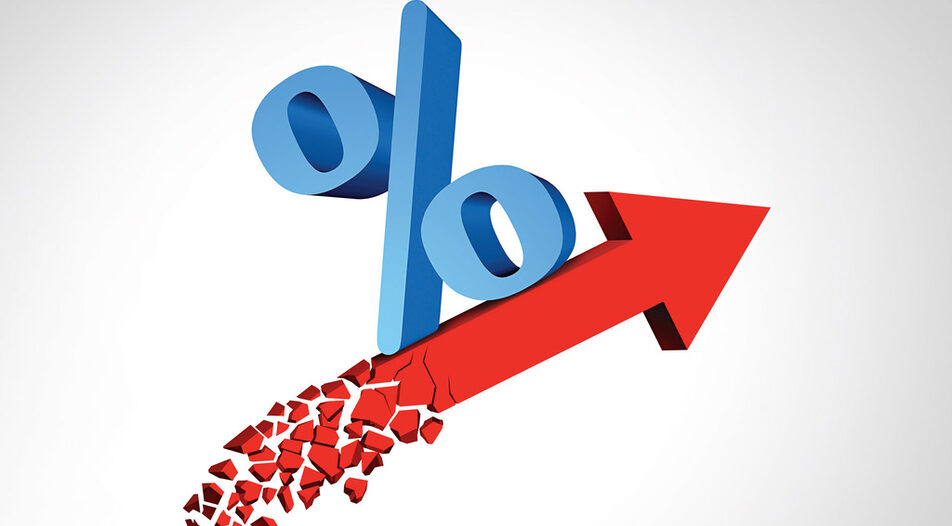- Even in the overly generous latest update to budget 2022, there is still money, but there are also many risks
- Currently, the main difficulties come from the global tightening of financial markets
- If no government is formed following the inconclusive general election held on October 2, the risk is for another dose of mass pre-election populism during the vote on 2023 budget vote
"There is no money in the Treasury. А regular government can solve all this. We firmly state that we are entering the Eurozone - interest rates will fall, markets will calm down, and we will be able to plug the holes". This is how GERB leader Boyko Borisov described the state of state finances, trying to convince the audience why it is crucial to have a regular government in the coming months. GERB won the October election but fell short of outright majority. For now, it seems no other party in the fragmented parliament wants to enter a coalition with the ex-rulers.
Borisov is not an expert in state finance, but he knows how to touch on painful topics and exploit them in his inimitable style. The truth is that even in the overly generous latest version of Budget 2022, there is still money, but there are also many risks. They are indeed fueled by the lack of clear parliamentary majority. But now the main difficulties come from the global tightening of financial markets. So the chance for the next government (led by GERB or not) to fix everything with a magic wand is not big.
With or without a regular cabinet, this parliament will probably have to vote on the 2023 state budget but it is hard to expect that it will have the will to cut spending. So the raging fiscal populism is unlikely to end anytime soon and will cost more and more.
No more cheap debt
The short-term risks are related to rising interest rates and the price at which the state is financed at the moment, which is what Borisov was trying to say.
Recently placed domestic government bonds have attracted little interest combined with rapidly rising yields and risk assessments. The projected budget deficit for 2022 is 6.2 billion levs (3.1 billion euro). The external and domestic debt maturing during the year is over 2.5 billion levs, so the finance ministry needs nearly 8.5 billion levs. However, almost 6.65 billion levs have been raised since the beginning of the year, so it seems that more debt issuance will be needed.
In a slightly longer-term plan, the forecasts are for a budget deficit in several years to come.
As Lachezar Bogdanov, Chief Economist at the Institute of Market Economics, says - any new debt will come with annual interest costs that have to be provided for by any future finance minister before allocating funds for pensions, salaries, or hospitals.
And interest rates will rise further. In an attempt to control the galloping inflation, the U.S. Federal Reserve System and the European Central Bank continue to raise their policy rates, and the expectations are for this to continue at least until the spring of 2023.
"This means that the future administration should not live with the illusion that it can spend without limits," says Bogdanov.
And there is no budget without a deficit
At the same time, caretaker finance minister Rositsa Velkova has already announced that if the state doesn't take measures to reduce costs, the potential budget deficit will amount to 11.3 billion levs next year. Conservative estimates show that this winter the Eurozone will go into recession, and this will affect both the Bulgarian economy and the state's revenues.
In addition, the implementation of the National Recovery and Resilience Plan, for which Bulgaria expects to receive nearly 2 billion euro for next year from the EU, has been delayed.
Against this background, regardless of whether a government is formed or whether a draft budget prepared by the caretaker cabinet is voted on, if populism in parliament prevails and expenses rise, the probability of a budget deficit above the permissible level increases.
If the parties in parliament fail to reach an agreement to form a government, it is highly likely to see a repetition of what happened during the vote on the budget updates in 2022 and 2021 - massive pre-election populism and allocation of spending to everyone. The result, however, will be a gradual spiral of pension and wage growth, followed by chronic deficits and increasingly expensive debt to finance them. And with such a policy, even if we somehow miraculously manage to fit into the budget deficit criterion for adoption of the euro, hardly anyone will want Bulgaria in the Eurozone.
- Even in the overly generous latest update to budget 2022, there is still money, but there are also many risks
- Currently, the main difficulties come from the global tightening of financial markets
- If no government is formed following the inconclusive general election held on October 2, the risk is for another dose of mass pre-election populism during the vote on 2023 budget vote
"There is no money in the Treasury. А regular government can solve all this. We firmly state that we are entering the Eurozone - interest rates will fall, markets will calm down, and we will be able to plug the holes". This is how GERB leader Boyko Borisov described the state of state finances, trying to convince the audience why it is crucial to have a regular government in the coming months. GERB won the October election but fell short of outright majority. For now, it seems no other party in the fragmented parliament wants to enter a coalition with the ex-rulers.












